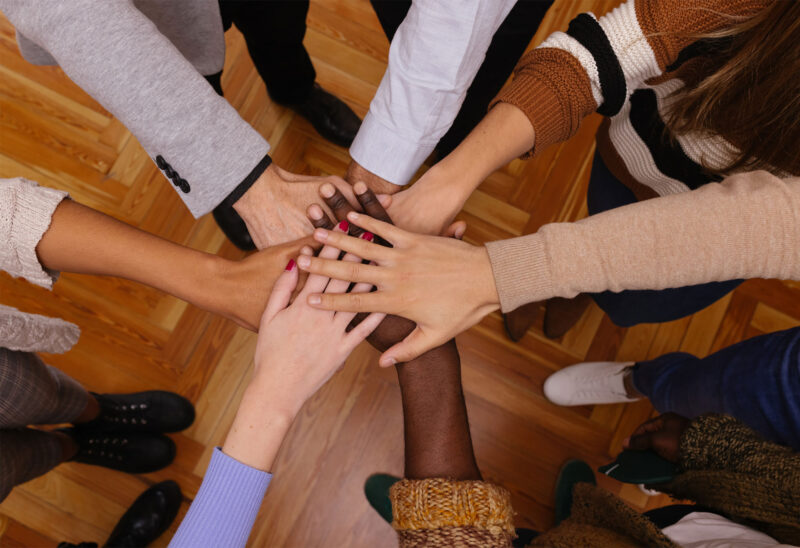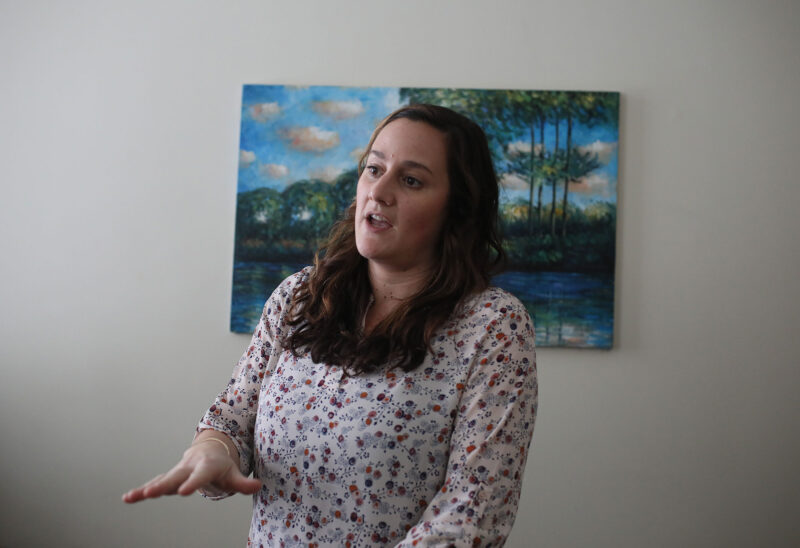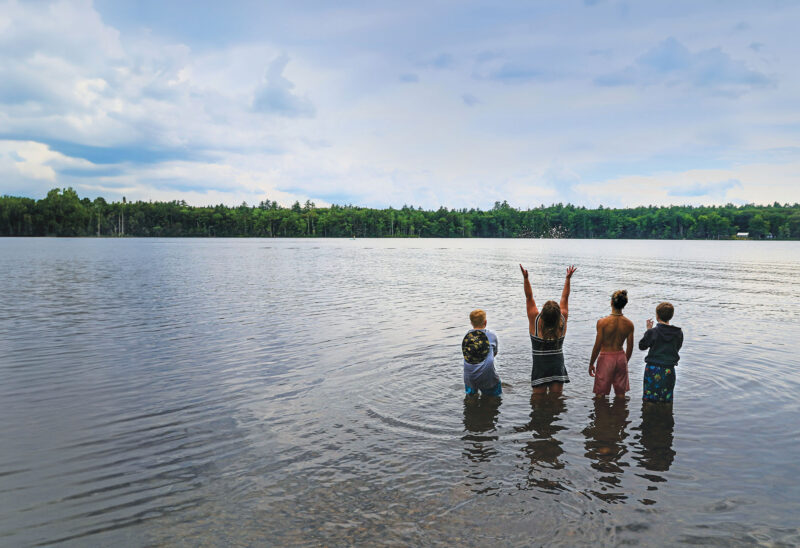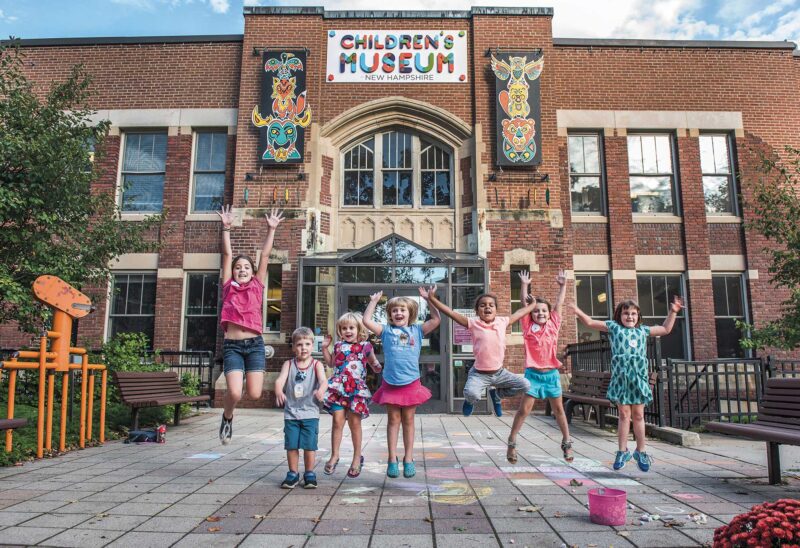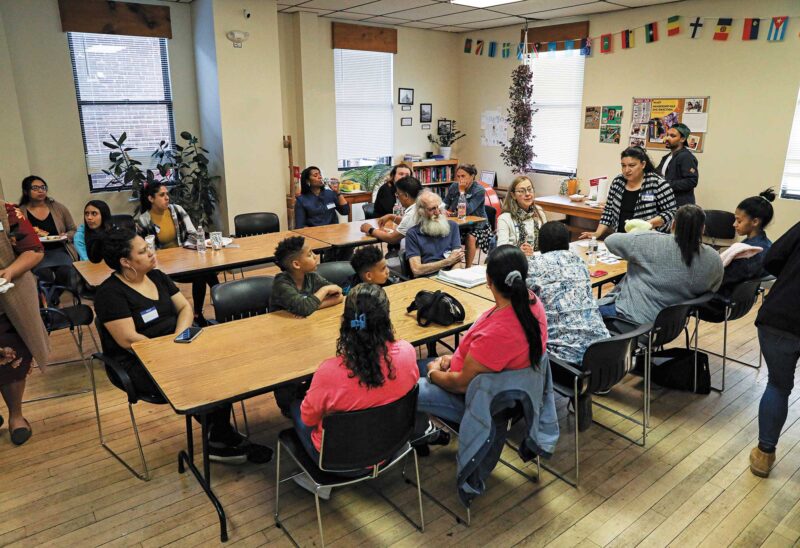When Trevor Birard of Jefferson whacks a golf ball, casts a fishing line, revels in a bicycle ride or skis down a slope, he is not merely enjoying a day of sporting fun.
For Trevor, the activities provided through Adaptive Sports Partners of the North Country (ASPNC) provide a sense of freedom and independence and help build confidence and self-esteem.
Trevor, 31, is a sports enthusiast who has epilepsy, cerebral palsy, a learning disability and speech impairment. Through ASPNC, he and 200 other people with physical or cognitive disabilities experience the thrill of accomplishment through sports.
“It helps them feel like everybody else,” said Trevor’s mom, Eleanor Birard. “They are on the ski slope, just the same as everybody. They are riding a bike, just the same as everybody.”
Based in Franconia, Adaptive Sports Partners of the North Country’s three staffers, 200 volunteers and community partners improve and enrich the quality of life for people with disabilities with year-round opportunities for sport, recreation and wellness.
The Foundation made a recent multi-year operating grant to Adaptive Sports Partners to help the organization provide services to people of the North Country.
Located in the White Mountains, the organization offers hiking, biking, swimming, kayaking, skiing, snowshoeing, rock climbing, golf, fly fishing – even gardening. It recently added an adaptive skiing program at Burke Mountain in Vermont.
“We want to make sure everyone can have access to all of this,” said Executive Director Kelly Walsh. “When you get people outside and socializing with each other and experiencing the outdoors, it makes such a difference in physical health and in mental health for everyone.”
The federal Centers for Disease Control and Prevention reports that sport and recreation improve mental health, physical health, increase opportunities for employment and improve overall well-being, especially for people with disabilities.
ASPNC’s goal is to provide more than a memorable day on a ski slope, trail or river.
“We want this to be a lifestyle,” Kelly said. “We want people to be able to find what is best for them and what brings them the most joy.”
As she enthusiastically describes the programs, Kelly frequently mentions “joy.”
“Joy. Lots and lots of joy. That’s the main feeling I see, and a feeling of accomplishment,” Kelly said on a frigid February morning at Cannon Mountain before skiing with a group of ASPNC athletes. “You can hear their confidence in the way they are talking and laughing” after working hard on a hike, bike ride or ski run.
Or, as Eleanor has witnessed with Trevor, on a golf course or at a fishing spot.
“He hasn’t caught a fish, but that doesn’t matter,” she said. “He was so excited to show us how good at casting he was.”
And, when Trevor nails a golf ball, there are cheers, high fives and thumbs up all around. “It’s a wonderful self-esteem builder,” Eleanor said.
Outdoor activities often don’t come easy for people with disabilities because of the cost or lack of specialized adaptive equipment or trained support.
Adaptive Sports Partners does not turn anyone away because of their ability to pay. It provides scholarships, specialized instructors and the necessary (often very expensive) equipment to keep athletes safe. Its programs also are free of charge for military veterans.
Athletes with disabilities, like all athletes, gain confidence by taking risks under supervision, pushing themselves and expanding their concept about what they are capable of.
ASPNC’s support includes everything from close supervision while kayaking or hiking to a helping hand on the ski slopes.
An older athlete with Parkinson’s Disease enjoys skiing with friends, Kelly explained, but also realized his friends couldn’t lift him if he fell. So ASPNC now provides a volunteer to ski with the group and step in if needed.
“All he wants to do is ski with his friends and we are there to make sure he can keep doing that,” Kelly said.
Eleanor said the program’s staff and volunteers are like family. They respectfully and safely guide her son, include her and her husband in activities and provide her an opportunity for a few relaxing minutes away while Trevor is on a bike ride or skiing.
She truly realized the program’s value when many activities were suspended because of the pandemic, and she no longer had help at home from an aide.
Trevor regressed from the lack of activities, she said, and was beyond excited when they resumed in 2021.
“Adaptive Sports is a savior,” Eleanor said. “It’s good for Trevor’s all around well-being.”

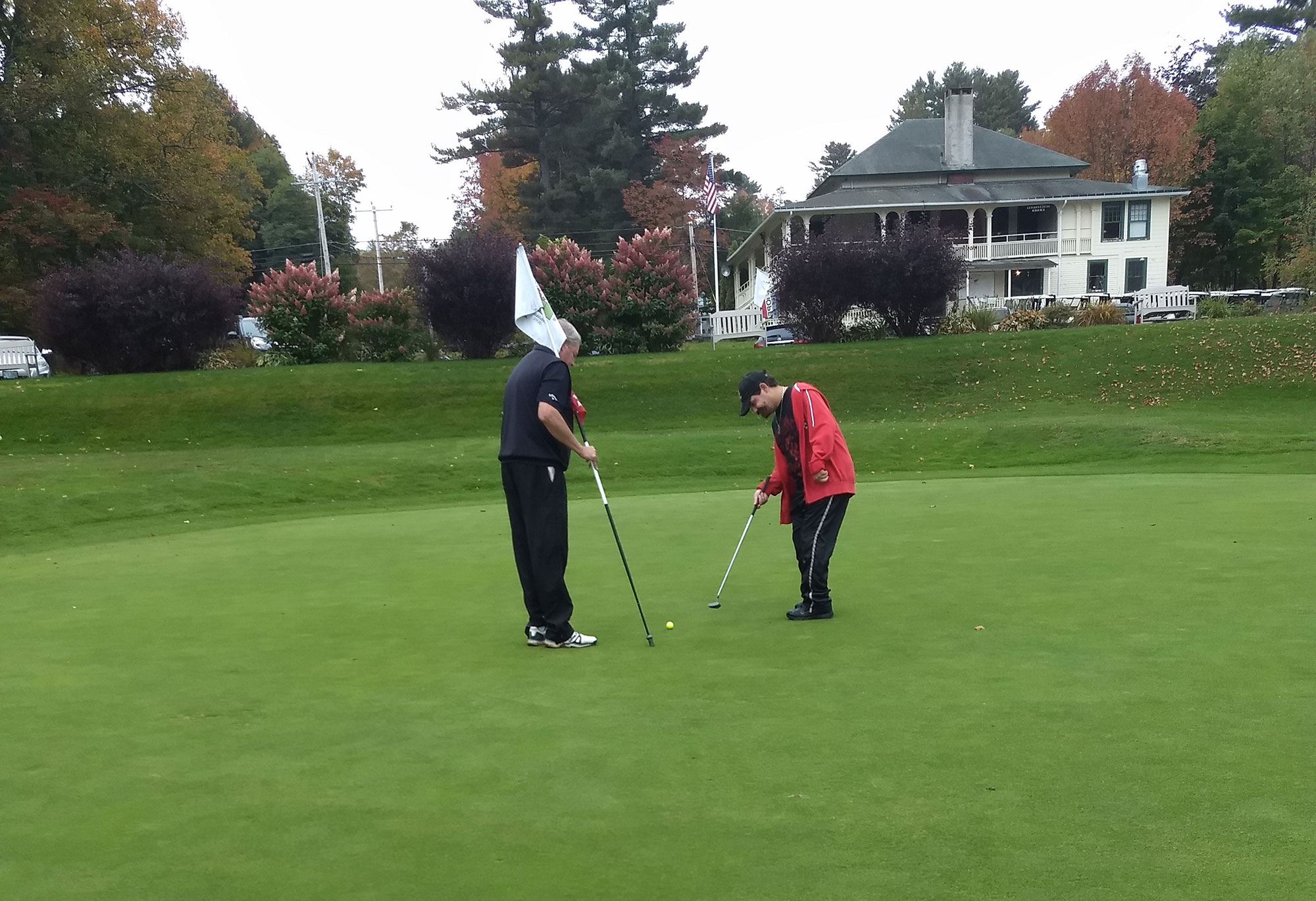







![Oluwakemi Olokunboyo of Dover received a McNabb scholarship to study nursing at Great Bay Community College [Photo by Cheryl Senter]](https://www.nhcf.org/wp-content/uploads/2024/05/Scholarship-Hero-800x548.jpg)

![Rev. Heidi Carrington Heath joined Seacoast Outright. [Photo by Cheryl Senter]](https://www.nhcf.org/wp-content/uploads/2024/05/Heidi-Carrington-Thumbnail-800x548.jpg)
![Dr. Jennie Hennigar treats a patient at the Tamworth Dental Center [Photo by Cheryl Senter]](https://www.nhcf.org/wp-content/uploads/2024/05/TCCAP-Hero-800x548.jpg)


